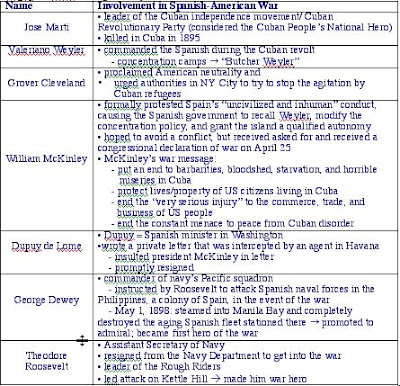- Imperialism: territorial acquisition to extend a nations power
- Ex. Imperial Britain (largest), France, Germany, Portugal, other European countries establishing colonies in Asia and Africa
- U.S. engaged in imperialism after it acquired land from the Spanish-American war (1898)
- Alfred Thayer Mahan published his thesis in The Influence of Sea Power Upon History
- Countries with sea power were great nations in history
- Prerequisites for naval power = productive domestic econ, foreign commerce, strong merchant marine, navy to defend trade routes, colonies
- Advocated US construct a canal across Central America
- 1870s and 1880s gov launched shipbuilding program
 4. Who was Queen Liliuokalani?
4. Who was Queen Liliuokalani?- Queen Liliuokalani: strong nationalist who took the throne in 1891 and set out to challenge the growing American control of the islands
- Only on throne for 2 yrs, 1890 US eliminated privileged position of Hawaiian sugar in international trade
- Only way for islands to recover was to become part of U.S.
- The destruction of the Maine was seen as an attack from Spain
- Spanish minister insulted the President
- The US was able to take the US holding of Puerto Rico and the Philippines and fain favor with Cuba
- Joseph Pulitzer – Hungarian immigrant, Civ War vet, successful newspaper publisher in St. Louis --> bought NY World 1883‡ very successful
- ^ “Yellow Journalism” new tech possibilities, came to mean sensationalist style or reporting and writing
- William Randolph Hearst imitator who bought New York Journal 1895
- Used color even more lavishly than Pulitzer
- Competition btw the two
- Sensationalized coverage of the Maine and Spanish American War
Bush may have CHEATED to win 2004 Election: Faulty Voting Machines or True Victory?!
8. Create a chart that shows how the following people were involved in the Spanish-American War; Jose Marti, Valeriano Weyler, Grover Cleveland, William McKinley, Dupuy de Lome, George Dewey, Theodore Roosevelt.
 9. What happened at San Juan Hill?
9. What happened at San Juan Hill?- Theodore Roosevelt charged San Juan Hill --> took control of important location near Santiago
- Earned Roosevelt his reputation
- Calvary unit led by Theodore Roosevelt --> made him into hero

12. What were the arguments of the Anti-Imperialist League?
- Imperialism = immoral
- Opposed concept of American freedom
- Dislike of inferior races
- Feared large standing armies
- Dislike competition
- U.S. controlled military and occupied country
- Supported the infrastructure schools, hospitals, roads, administration
- Platt Amendment meant the Cuban Constitution required to give the US control over Cuba in terms of defense of Constitution
- Resisted US control --> guerilla tactics
- Reasons for control
- returning islands to Spain = cowardly/dishonorable
- turning islands over to another imperialist power = bad business/discreditable
- independence for island = irresponsible
• Closed:
- Americans concerned about future of China ’ US had important trade w/ China
- England, France, Germany, Russia, Japan had already pressured Chinese government ’ gave them control over various regions of China
16. Who was John Hays and what did he write in his notes?
• John Hays: Secretary of State
• Translated McKinley “Open door statement” into policy --> “Open Door Notes”
• “Open Door Notes”: addressed identical messages to England, Germany, Russia, France, Japan, and Italy --> asked them to approved 3 principles
1) each nation w/ a sphere of influence in China was to respect the rights and
privileges of other nations in its sphere
2) Chinese officials were to continue to collect tariff duties in all spheres
3) nations were not to discriminate against other nations in levying port dues and
railroad rates w/in their own spheres
Would allow US to trade freely w/ Chinese w/out fear of interference and w/o having to become militarily involved in region
17. Who were the Boxers and why did they rebel?
• Boxers = a secret nationalist Chinese martial-arts society whose nationalist conviction lead them to rebel against foreigners
18. How did the Boxer Rebellion affect China - U.S. A. relations?
• Chinese territorial integrity survived at least in name
• US maintained access to trade
19. Explain (your opinion - based on facts) the significant ways that imperialism changed the United States as it entered the 20th century. Think about social, political, military, and economic considerations.
- Transition into semi-imperialism allowed US to establish itself as global power
- Impact and power of its economy and trade markets
- Formation of a more powerful and organized army/navy ‡ Military power
- Enforced beliefs of white supremacy
- Revealed need for a stronger central government
- ECONOMIC STABILITY!
- Redefined foreign policy
- Stronger central government
- Organized military
- Focus on internal improvements rather than external expansion
No comments:
Post a Comment